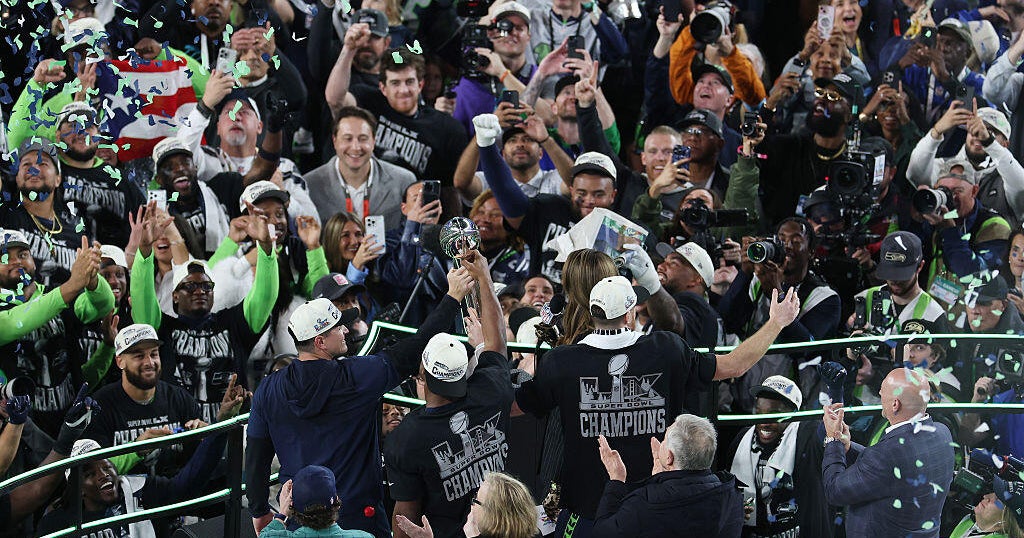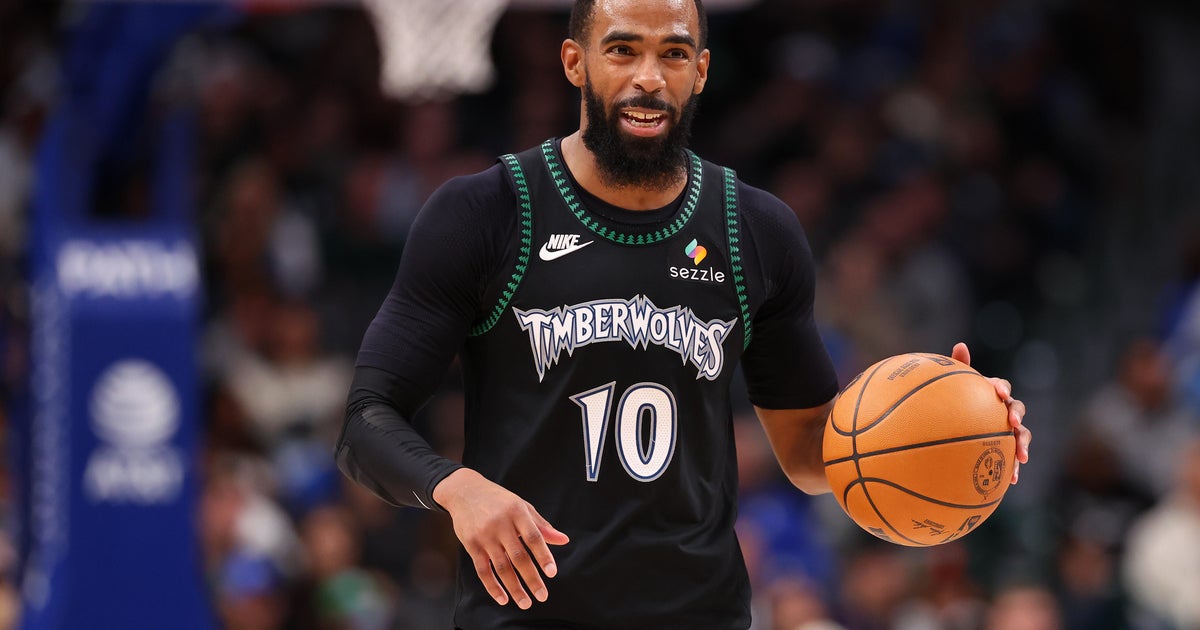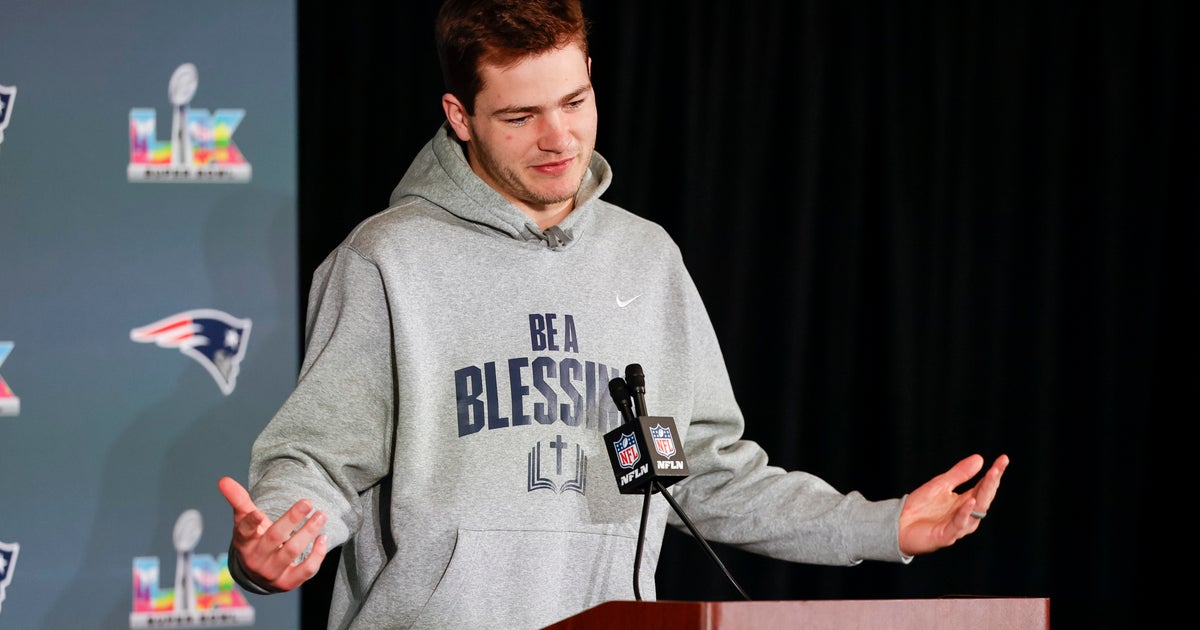Durkin's Playbook: Saints Passing Attack - Deception and Execution
By Dan Durkin-
(CBS) The New Orleans Saints offense is firing on all cylinders because of superior talent and a creative scheme. Head coach Sean Payton uses formations to create advantageous one-on-one matchups, but in the end, it comes down to execution.
While reviewing the Saints coaches film, a word I typically don't associate with football kept resonating in my head: unselfish. On plays that were clearly designed for a specific player, the remaining eligible receivers played the role of decoy, selling their routes at full speed simply to create an open opportunity for a teammate.
Obviously, the Saints are going to design as many plays as possible to get the ball in the hands of their three best playmakers: tight end Jimmy Graham, running back Darren Sproles, and wide receiver Marques Colston. But in a high-volume offense, everyone's number gets called at some point.
This puts a lot of stress on the defense as they devise their game plans, as there simply isn't enough time in a given week to prepare for everything. As a result, defenses compromise and focus on concepts and down-and-distance tendencies in certain personnel groupings. The Saints are keenly aware of this and frequently capitalize with counters, constraints, and variations to their base offense.
Let's go to the film room to look at a few examples of how the Saints stay one step ahead of their opponents.
One of the staples of the Saints passing attack is "four verticals." This concept is exactly what it sounds like - four receivers streaking vertically up the field to attack the safeties and divide coverage.
On a 3rd-and-20, the Saints come out in '11' personnel (1 running back, 1 tight end) in a 2x2 alignment, but shift into a 3x1.
The Dolphins don't follow Kenny Stills as he motions to the 'trips' side of the field, so Brees knows he's working against two-deep zone coverage.
Film study in this down and distance situation shows the Saints tendency to attack the defense vertically. The Saints do just that, four receivers release full-speed on vertical routes.
The Dolphins drop into their deep passing zones, which creates a void underneath and the Saints have a great play dialed up: a slip screen to Sproles. With four blockers and three defenders outside the hash, the Saints have a numerical advantage to the boundary for the speedy Sproles to work the perimeter.
The Saints convert on a 3rd-and-20 to keep the drive alive, scoring a touchdown three plays later. This was a safe-yet-shrewd call by Payton, excellent down-field blocking, and crafty running by Sproles to get to the marker.
The next example comes from the Saints-Cardinals game. The Saints have the ball 2nd-and-16 at the Cardinals 21-yard line and again come out in '11' personnel in a 3x1 alignment with Darren Sproles (circled in yellow) as the No. 1 receiver on the trips side of the formation.
With Sproles as the No. 1 receiver in this set, it's an alert to the defense of an inside-breaking route. The Saints do just that, running Sproles on a quick underneath screen, and Robert Meachem (the No. 2 receiver) and Jimmy Graham (the No. 3 receiver) release as if they're going to block.
Brees pump fakes the screen, getting two Cardinals defenders to jump the route and freezes a third.
Meacham and Graham slip their blocks and release on vertical routes, giving Brees a huge throwing window to drop the ball into.
Graham and Meacham's spacing got congested as the corner squeezed and the single-high safety drove down on the ball, but Meacham was still able to haul it in for a touchdown.
This is another perfect example of Payton using a variation on a schemes he's previously shown out of that formation and personnel grouping.
Defenders play on instinct, quickly reacting to what their eyes tell them. The Saints scheme ways to test defender's eye discipline, and use it against them by self-scouting their own tendencies and building in wrinkles and variations to base concepts.
For defensive coordinators, it's pick your poison with the Saints.
Questions about this playbook or suggestions for a future playbook? Follow Dan on Twitter: @djdurkin















